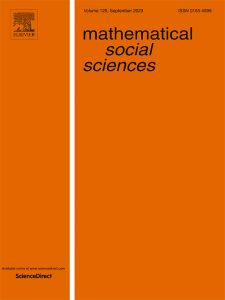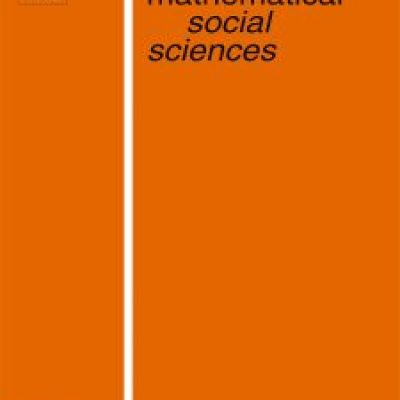Computational complexity of necessary envy-freeness
Haris Aziz, Ildikó Schlotter, Toby Walsh
Highlights
- Envy-free allocation of indivisible items to a few agents is computationally hard.
- Finding a necessarily envy-free allocation is NP-hard already for 3 agents.
- For any n ≥ 3 , finding a necessarily envy-free allocation for agents is NP-hard.
Abstract
We consider the fundamental problem of fairly allocating indivisible items when agents have strict ordinal preferences over individual items. We focus on the well-studied fairness criterion of necessary envy-freeness. For a constant number of agents, the computational complexity of the deciding whether there exists an allocation that satisfies necessary envy-freeness has been open for several years. We settle this question by showing that the problem is NP-complete even for three agents. Considering that the problem is polynomial-time solvable for the case of two agents, we provide a clear understanding of the complexity of the problem with respect to the number of agents.
Keywords: Fair division, Envy-freeness



